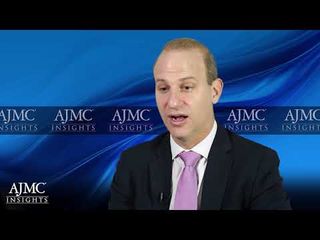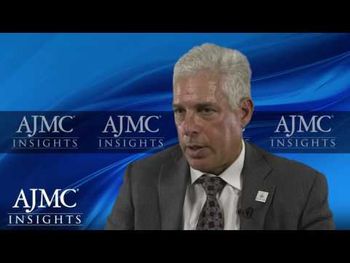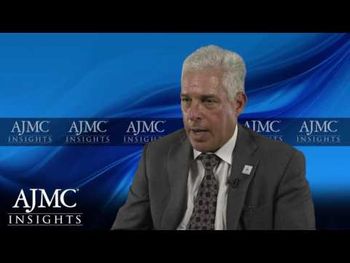
Clinical Pathways
Latest News
Latest Videos

CME Content
More News

Results from the randomized NOVA trial convinced the FDA to approve niraparib (Zejula) as maintenance treatment for adult patients with recurrent epithelial ovarian, fallopian tube, or peritoneal cancer who are sensitive to platinum-based chemotherapy.

At the 22nd Annual Conference of the National Comprehensive Cancer Network, held March 23-25, 2017, in Orlando, FL, Gregory J. Riely, MD, PhD, Memorial Sloan Kettering Cancer Center, spoke about the what, when, and how of biomarker testing in non-small cell lung cancer.

On the second day of the 22nd Annual Conference of the National Comprehensive Cancer Network (NCCN), Kilian E. Salerno, MD, of the Roswell Park Cancer Institute, walked the audience through updates to the NCCN Guidelines, explaining clinical situations in which radiation is indicated, appropriate targets of radiation treatment, and optimal approaches for minimizing toxicity.

Do newer forms of radiation treatments surpass standard radiation in prostate cancer?

A new study has found that clinicians who used an electronic drug reference database at the point of care tended to prescribe a more varied range of medications and started to prescribe new generic drugs faster than other doctors.

Difficulty in making pricing and reimbursement decisions for rare diseases has prevented patients from having universal access to new medicines despite increased investment in their research and development. In Europe, a group has proposed 9 principles to guide value assessment, pricing, and funding.

The FDA has approved Novartis’ ribociclib (Kisqali) for treatment of postmenopausal women with hormone receptor positive, human epidermal growth factor receptor-2 negative (HR+/HER2-) advanced or metastatic breast cancer.

With costs of care being more closely scrutinized, there has been a proliferation of value frameworks to help guide decision making for treatments. In a blog post for Health Affairs, Robert W. Dubois, MD, PhD, and Kimberly Westrich, MA, both of the National Pharmaceutical Council, provide possible considerations for advancing the field of value frameworks.

Implementation of clinical pathways saved $15,013 in the total cost of care per patient over a year.

A new clinical pathways program at the Cancer Treatment Centers of America will help inform treatment by seamlessly integrating into the physician’s electronic health record.

At the 5th annual Patient-Centered Oncology Care® meeting, stakeholders shared their views on how bundled payments, clinical pathways, and other value-based approaches can be implemented in cancer care while ensuring adequate care quality.

Population-level judgements on the value of therapies to treat multiple sclerosis don’t adequately depict the differences between how providers and payers view value compared with patients and how patients view value different from one another.

Feedback received by the Institute of Clinical Effectiveness Research during this time will be evaluated and incorporated as seen fit, before the final changes are made to the framework.

A multicollaborative study has identified gaps in existing quality measures used by accountable care programs that could result in missed opportunities to improve patient outcomes.

The authors illustrate a methodology for delineating variations in medical costs for patients with similar clinical conditions and needs using electronic health record data.

The American Society of Clinical Oncology (ASCO) has released the Criteria for High-Quality Clinical Pathways in Oncology, which is expected to help providers assess the quality, utility, and integrity of pathway programs in the United States.

The American Society of Clinical Oncology (ASCO) has announced that it is collaborating with Innovative Oncology Business Solutions, Inc, on ASCO COME HOME.

While in theory value frameworks are beneficial, a survey from Avalere Health found that not many health plans are actually using them.





















